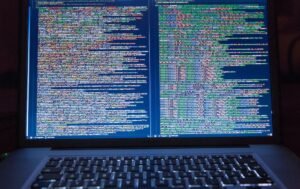Where Machine Learning Is Used
Machine learning, a field of artificial intelligence (AI), is revolutionizing various industries and applications by enabling computers to learn and make decisions without explicit programming. This technology is rapidly transforming the way we live and work, with its applications extending across a wide range of sectors.
Key Takeaways
- Machine learning is being used in diverse industries such as healthcare, finance, retail, and transportation.
- It is employed in areas such as image recognition, natural language processing, recommendation systems, fraud detection, and autonomous vehicles.
- Machine learning algorithms are designed to improve over time by learning from data patterns and making predictions or decisions based on new inputs.
In healthcare, machine learning is utilized to enhance the accuracy of medical diagnoses, predict patient outcomes, and personalize treatment plans. With large amounts of medical data available, **machine learning algorithms** can identify patterns and provide valuable insights for better patient care. *Machine learning is transforming healthcare by enabling early disease detection and personalized medicine based on individual patient characteristics.*
In the finance industry, machine learning is extensively used for **credit scoring**, **fraud detection**, and **algorithmic trading**. By analyzing historical data and current market conditions, machine learning models can predict creditworthiness, identify suspicious transactions, and even automate trading decisions. *Machine learning algorithms provide financial institutions with powerful tools to manage risk, detect fraudulent activities, and optimize investment strategies.*
Retail businesses are increasingly adopting machine learning techniques to improve customer experience, optimize pricing strategies, and automate inventory management. With advanced analytics, retailers can analyze customer behavior, understand preferences, and make personalized product recommendations. *Machine learning enables retailers to identify trends, anticipate customer demands, and enhance operational efficiency through intelligent decision-making.*
| Industry | Use Case |
|---|---|
| Healthcare | Medical diagnoses and treatment prediction |
| Finance | Credit scoring and fraud detection |
| Retail | Customer behavior analysis and personalized recommendations |
Machine learning is also paving the way for autonomous vehicles, with **image recognition** and **sensor data analysis** playing key roles. Self-driving cars rely on machine learning algorithms to perceive the environment, make decisions, and navigate safely. By processing massive amounts of sensor data in real-time, autonomous vehicles can identify objects, predict behavior, and take appropriate actions. *The development of self-driving cars is heavily reliant on machine learning to ensure road safety and improve transportation efficiency.*
In addition, machine learning has found applications in **natural language processing**, facilitating improved language translation, voice recognition, and chatbot development. By analyzing text or speech data, machine learning models can understand human communication and respond accordingly, making interactions with digital systems more intuitive and efficient. *Machine learning enhances communication by enabling computers to comprehend and generate human language.*
| Use Case | Machine Learning Technique |
|---|---|
| Object recognition | Convolutional Neural Networks (CNN) |
| Behavior prediction | Recurrent Neural Networks (RNN) |
| Decision-making | Reinforcement Learning |
Machine learning is relentless in its expansion into various industries and applications, helping solve complex problems, optimize processes, and enable new capabilities. As technology continues to evolve, we can expect machine learning to play an even more significant role in shaping our future.
References
- “Machine Learning” – Stanford University
- “Applications of Machine Learning” – Towards Data Science
- “Machine Learning in Healthcare” – Medium

Common Misconceptions
Machine Learning in Cybersecurity
One common misconception people have about machine learning is that it is mainly used in complex technologies like cybersecurity. However, machine learning is used in a variety of applications beyond cybersecurity.
- Machine learning is used in fraud detection systems to analyze patterns and detect anomalies in financial transactions.
- Machine learning is utilized in email spam filters to automatically classify and filter out unwanted messages.
- Machine learning is also employed in network intrusion detection systems to identify and prevent unauthorized access to computer networks.
Machine Learning in Healthcare
Another common misconception is that machine learning is solely used in scientific research or healthcare diagnostics. While it is used in these areas, machine learning has a broader range of applications in the healthcare industry.
- Machine learning algorithms can be used to analyze medical images and assist in the detection of diseases like cancer.
- Machine learning is used in predicting patient outcomes and assisting in personalized treatment plans.
- Machine learning can also be applied to monitor and predict the spread of diseases, enabling more effective public health measures.
Machine Learning in Customer Service
One misconception is that machine learning is only used in customer service for automated chatbots. While machine learning does play a vital role in chatbot functionality, it has wider applications in improving the overall customer service experience.
- Machine learning is used to analyze customer data and provide personalized recommendations or offers.
- Machine learning algorithms can be employed to analyze customer sentiment and feedback, helping companies identify areas of improvement.
- Machine learning techniques are also used in customer churn prediction, allowing companies to take proactive actions to prevent customer attrition.
Machine Learning in Transportation
There is a misconception that machine learning is only relevant in self-driving cars or autonomous vehicles. While machine learning is indeed applied in these areas, its usage in transportation extends beyond just that.
- Machine learning algorithms can be used to optimize traffic flow and reduce congestion in urban areas.
- Machine learning is employed in predictive maintenance of vehicles, allowing for more efficient maintenance schedules and reduced downtime.
- Machine learning models are also used in logistics and supply chain management to optimize routes, reduce costs, and improve delivery times.

Table: Machine Learning in Healthcare
In recent years, machine learning has played a significant role in revolutionizing healthcare. This table presents some of the areas where machine learning algorithms are used in the field.
| Application | Description |
|---|---|
| Medical image analysis | Machine learning models aid in detecting diseases from X-ray, MRI, and CT scan images. |
| Drug discovery | Algorithms help identify and analyze potential new drugs, speeding up the discovery process. |
| Personalized medicine | Machine learning predicts individual patient treatment responses based on genetic and clinical data. |
| Diagnosis support | ML algorithms assist physicians in accurate decision-making and enhance diagnostic accuracy. |
Table: Machine Learning in Finance
Machine learning techniques have proven invaluable in the financial industry, enhancing risk assessment, fraud detection, and investment strategies. The table below highlights some applications.
| Application | Description |
|---|---|
| Credit scoring | Machine learning models predict creditworthiness by analyzing various factors. |
| Algorithmic trading | ML algorithms execute trades based on historical data, market trends, and complex strategies. |
| Fraud detection | Algorithms flag suspicious transactions, reducing financial losses due to fraudulent activities. |
| Portfolio management | ML assists in optimizing investment portfolios based on risk appetite and market conditions. |
Table: Machine Learning in Transportation
The transportation sector has witnessed remarkable improvements through the implementation of machine learning solutions. The following table showcases some notable uses.
| Application | Description |
|---|---|
| Autonomous vehicles | ML algorithms enable self-driving cars to perceive and navigate their surroundings. |
| Traffic prediction | Algorithms analyze historical data to forecast traffic patterns and optimize routes in real-time. |
| Ride-sharing optimization | ML optimizes the allocation of drivers and passengers, reducing transport costs and wait times. |
| Cargo routing | Machine learning models determine the most efficient routes for shipping goods based on various factors. |
Table: Machine Learning in Marketing
Machine learning has transformed the marketing landscape by enabling targeted advertising, predicting customer behavior, and improving campaign performance. The following table provides examples.
| Application | Description |
|---|---|
| Customer segmentation | ML algorithms group customers based on demographics and behavior, allowing personalized marketing strategies. |
| Recommendation systems | Algorithms suggest products or services based on customer preferences and purchase history. |
| Predictive analytics | Machine learning predicts customer behavior, helping marketers tailor their strategies and improve conversions. |
| Churn prediction | ML models identify customers at risk of churning, enabling proactive retention strategies. |
Table: Machine Learning in Education
Machine learning has shown immense promise in improving educational experiences, personalizing learning, and assessing student performance. The table below showcases some key applications.
| Application | Description |
|---|---|
| Intelligent tutoring systems | ML algorithms offer personalized instruction and adapt educational materials to individual student needs. |
| Automated grading | Algorithms automate the grading process, saving educators time and offering faster feedback to students. |
| Learning analytics | Machine learning analyzes educational data to assess student performance and identify areas for improvement. |
| Adaptive learning platforms | ML systems dynamically adjust learning content and pace based on individual student progress. |
Table: Machine Learning in Manufacturing
Machine learning plays a crucial role in optimizing manufacturing processes, predicting maintenance needs, and improving quality control. Explore some applications in the table below.
| Application | Description |
|---|---|
| Predictive maintenance | Machine learning models anticipate equipment failures, minimizing downtime and optimizing maintenance schedules. |
| Quality control | Algorithms analyze sensor data to identify product defects and anomalies, ensuring high-quality standards. |
| Supply chain optimization | ML algorithms optimize inventory management, demand forecasting, and logistics to enhance efficiency. |
| Production optimization | Machine learning models analyze data to optimize production processes, reducing waste and improving productivity. |
Table: Machine Learning in Agriculture
Machine learning in agriculture has immense potential to optimize crop yield, forecast weather patterns, and enable precision farming. Discover some applications in the table below.
| Application | Description |
|---|---|
| Crop yield prediction | ML models analyze historical data to predict crop yields, aiding farmers in planning and decision-making. |
| Pest management | Algorithms detect and predict the spread of pests, enabling targeted interventions and reducing crop damage. |
| Weather forecasting | Machine learning models analyze meteorological data to predict weather patterns for better farm management. |
| Soil analysis | ML algorithms classify soil types and assess their fertility, guiding farmers in optimal resource allocation. |
Table: Machine Learning in Entertainment
Machine learning has transformed the entertainment industry by enhancing content recommendation, personalization, and user experience. The table below showcases some notable applications.
| Application | Description |
|---|---|
| Content recommendation | ML algorithms suggest movies, TV shows, or music based on user preferences and behavior. |
| User sentiment analysis | Algorithms analyze user feedback and sentiment to understand audience preferences and tailor offerings. |
| Virtual assistants | Machine learning powers virtual assistants, offering voice-based interaction and personalized recommendations. |
| Video game AI | ML algorithms enhance the intelligence and behavior of non-player characters in video games. |
Table: Machine Learning in Security
Machine learning has become a vital tool in cybersecurity, fraud detection, and threat prevention. The following table highlights its applications.
| Application | Description |
|---|---|
| Anomaly detection | ML algorithms identify unusual patterns or behaviors in systems, aiding in the detection of cyber threats. |
| User authentication | Algorithms use behavioral analysis and biometrics to authenticate users securely. |
| Network intrusion detection | Machine learning models monitor network traffic to detect and prevent unauthorized access. |
| Fraud prevention | ML techniques analyze data to identify patterns of fraudulent activities and prevent financial losses. |
In conclusion, machine learning has emerged as a powerful technology with broad applications across various industries. From healthcare to finance, transportation to marketing, education to security, its impact is transforming processes, enabling better decision-making, and enhancing efficiency. As our world becomes increasingly data-driven, machine learning will continue to shape the future across diverse domains.
Where Machine Learning Is Used
Frequently Asked Questions
What is machine learning?
Machine learning is a field of artificial intelligence (AI) that focuses on developing algorithms and models that can automatically learn and improve from experience without being explicitly programmed. It enables computers to analyze large amounts of data, identify patterns, and make accurate predictions or decisions.
How is machine learning different from traditional programming?
Traditional programming involves a set of rules and instructions given to a computer to perform specific tasks. Machine learning, on the other hand, enables computers to learn from examples and data to generate their own rules and improve their performance over time. Instead of explicitly programming every feature or decision, machine learning models are trained to make accurate predictions or classifications based on patterns in the input data.
Where is machine learning used in the real world?
Machine learning is used in a wide range of industries and applications. It has applications in areas such as healthcare (medical diagnosis, personalized medicine), finance (fraud detection, algorithmic trading), retail (recommendation systems, demand forecasting), transportation (autonomous vehicles, traffic prediction), and many others. It is also used in image and speech recognition, natural language processing, and virtual assistants.
What are some popular machine learning algorithms?
Some popular machine learning algorithms include linear regression, logistic regression, decision trees, random forests, support vector machines, k-nearest neighbors, and artificial neural networks. Each algorithm has its own strengths and weaknesses and is suited for different types of problems and data.
How does machine learning improve accuracy and efficiency?
Machine learning improves accuracy and efficiency by leveraging large amounts of data to identify underlying patterns and relationships that may not be apparent to humans. By training models on relevant data, machine learning algorithms can make accurate predictions or decisions with minimal human intervention. Additionally, machine learning can automate repetitive tasks and handle complex computations much faster than humans, resulting in improved efficiency.
How do companies use machine learning to improve customer experience?
Companies use machine learning to improve customer experience by analyzing customer data to gain insights and make personalized recommendations. Machine learning algorithms can analyze customer preferences, buying patterns, and historical data to tailor product suggestions, promotions, and advertisements to individual customers. This enables companies to provide a more personalized and targeted customer experience, increasing customer satisfaction and loyalty.
What challenges are involved in implementing machine learning projects?
Implementing machine learning projects can present several challenges. Some common challenges include obtaining sufficient quality data, selecting the right algorithms and models for the problem, feature engineering, handling bias and ethical considerations, and ensuring scalability and efficiency of the system. It also requires expertise in data science, machine learning, and software engineering to develop, train, and deploy machine learning models.
Are there any ethical concerns with machine learning?
Yes, there are ethical concerns with machine learning. These include issues like privacy, bias, fairness, and transparency. Machine learning models can inadvertently learn biases present in training data, leading to unfair or discriminatory outcomes. Additionally, the collection and use of large amounts of personal data raises concerns about privacy and security. It is important to address these ethical concerns to ensure the responsible and ethical use of machine learning technology.
What is the future of machine learning?
The future of machine learning is promising. It is expected to play a crucial role in various fields, including healthcare, finance, transportation, and automation. As technology advances, machine learning models will become more sophisticated, capable of handling increasingly complex tasks. Additionally, the integration of machine learning with other emerging technologies such as big data, Internet of Things (IoT), and cloud computing will further expand its applications and potential.
How can I start learning machine learning?
To start learning machine learning, you can begin by learning the fundamentals of programming, statistics, and mathematics. Familiarize yourself with Python, R, or other programming languages commonly used in machine learning. Take online courses or enroll in university programs that offer machine learning courses. Practice with real-world datasets and challenge yourself with various machine learning projects. Join online communities and forums to connect with other learners and professionals in the field.




